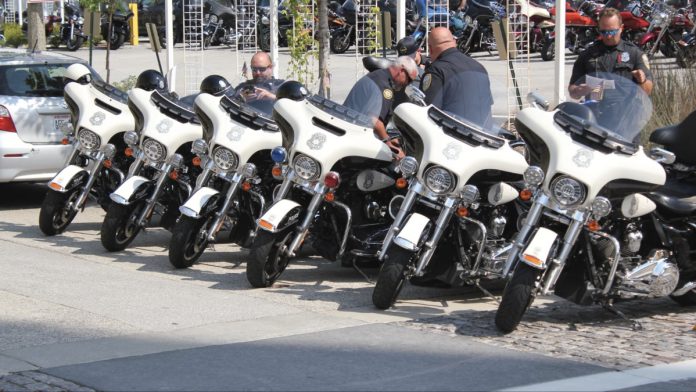“I’m appalled” – Milwaukee Police Association President Alex Ayala.
A Milwaukee hospital’s clinic denied a sick on-duty police officer medical treatment because the officer had a gun, according to the Milwaukee Police Department.
The president of the police union says it’s but the latest in a series of incidents in which Froedtert officials or staff have mistreated Milwaukee police officers.
We received a tip from a source about the incident initially. It sounded almost unbelievable, so we reached out to MPD. MPD confirmed to us that it’s true. Froedtert Hospital’s spokesperson did not respond to a request for comment.
Our source wrote us, “Very sick cop sent to Froedtert hospital Fastcare clinic to be seen during shift. Apparently MPD has contract with them. Officer was refused treatment because Officer had a gun. North side, last week.”
We asked MPD’s spokesperson whether that was true. On April 15, 2025, MPD responded, “The health and well-being of our officers is paramount to the Milwaukee Police Department. We are aware of this situation and are looking into it.”

We then clarified, “Can you be more specific? You say you’re aware of the situation – which situation? Was an officer denied treatment for having a gun?”
MPD’s spokesperson responded, “Yes.”

We then asked whether the lack of treatment endangered the officer, whether he was able to get treatment elsewhere (or eventually at Froedtert), and whether he was on duty at the time, as well as what exactly happened.
MPD wrote back, “The officer was on duty. After discussions with Fastcare, Milwaukee Police Department is confident this type of situation will not repeat itself.”

Froedtert’s website says that FastCare clinics under its umbrella are “similar to walk-in care, FastCare offers adults and children older than 18 months same-day in-person care, as an alternative to urgent care.”
For those not familiar, Froedtert is a major hospital in the Milwaukee County area.
“I’m appalled,” said Alex Ayala, president of the Milwaukee Police Association, to WRN. “I’m appalled by the actions of Froedtert for denying medical treatment to a police officer just because of the profession we chose to be. He’s on duty. It’s not like he’s off-duty with a gun on. He has no other choice. It does not surprise me. Froedtert has been very difficult to work with.”
Asked how so, Ayala said that, when Officer Daniel Gonzales was released from the hospital after being shot on duty, Froedtert officials “were not happy that there were so many officers present in hallways.”
He added, “They held a detective on duty from taking evidence of a homicide against her will. We are mistreated every time we go to take an assignment. They don’t want to let us in the back past the lobby to investigate. They’re fostering a bad relationship between the Froedtert community and the Milwaukee Police Department. Now you’re denying medical treatment based on our profession.”
Update: After this story ran, we received this information from a second MPD officer who asked us to withhold his name.
“Within the last two weeks or so, a colleague of mine on late shift got the call his wife was going into expected labor at Froedtert. At the time, he was on duty and in full uniform. He was permitted to clock out 2 hours early and go be with his wife for the birth of their child. However, once he arrived at Froedtert, apparently Froedtert staff refused to let him into the hospital while in uniform due to him still having his duty firearm on his person. They asked he leave his work belt and such in his personal vehicle,” he said.
“There are constant roll call briefings on these continued types of interactions between MPD officers conducting legal and lawful investigations with victims and even suspects and the brick wall that Froedtert staff continue to try and utilize to delay or obstruct our investigative efforts. Ive been on the job three years. I’ve never personally experienced it, but have heard multiple stories of those who have.”
We have since received a number of other messages from Milwaukee and suburban Milwaukee County police officers who say that officers are routinely denied treatment unless they remove their guns and that they feel ignored or disrespected when dealing with Froedtert, which also allegedly makes it difficult for them to collect evidence and interview victims or suspects.

































